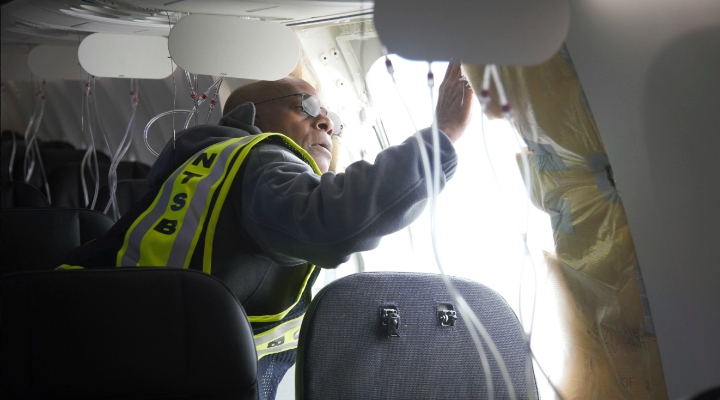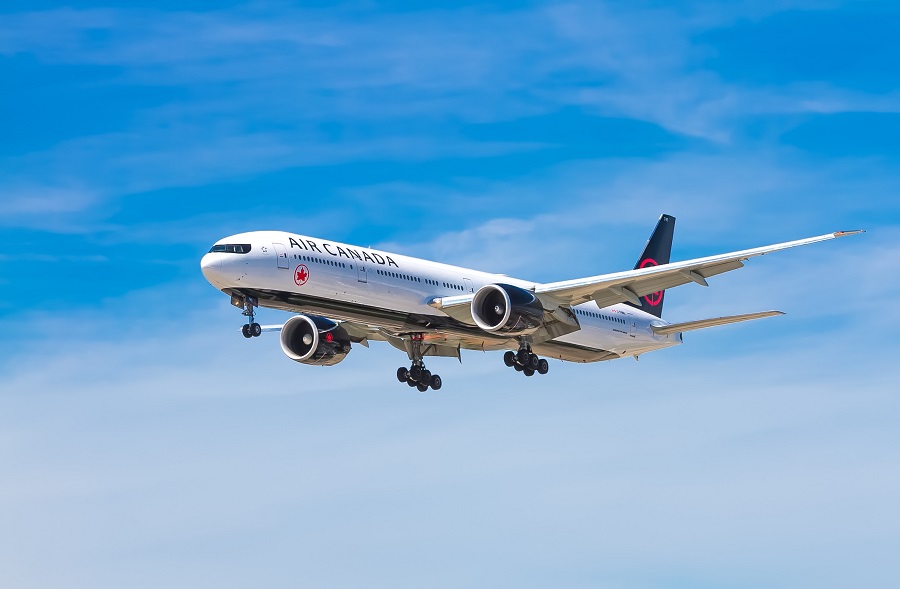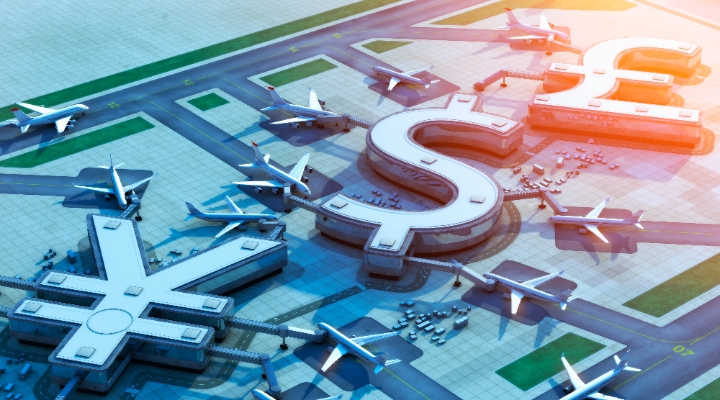Ruth Saldanha: In its latest quarterly earnings call, aircraft and munitions maker Boeing (BA) said it will pause its 737 MAX assembly line expansion plans until the U.S. Federal Aviation Administration is satisfied enough with its manufacturing processes to certify that its planes are safe. After the earnings call on Jan 31st, 2024, the stock rallied over 5%. What are investors so pleased about? Morningstar's Nicolas Owens covers the stock, and he is here today to tell us.
Nick, thank you so much for being here today.
Nicolas Owens: Thanks for having me, Ruth. Good to see you.
Key Takeaways from Boeing's Earnings Call
Saldanha: So, what are the key takeaways from the earnings call that Boeing had?
Owens: Well, I'd say the major emphasis was on the plan to basically stop at nothing to address the safety concern and really, those stem from a series of disruptions to Boeing's manufacturing operation that have taken place over the last few years. So, in addition to COVID, which disrupted people and suppliers, they also had stopped their assembly line earlier when two MAX 8s crashed in 2018-2019. So those things compounded to have really sent their operation into some sort of chaos. And the CEO really didn't talk at all about the finances. He was talking about, what we're going to do differently. And I think that's good.
In terms of takeaways, yes, the stock went up that day. It had run up quite a bit at the end of last year and then came sharply down on the news of this crash. My fair value estimate was $232 going into the call, and I lowered it a few dollars. Now we're at $219 just because the impact seems like it is limited – I mean, not tiny, but limited. It's really focused around the 737 assembly line. And it's just about the timing of when they can not ramp up production, but get back to a normal pace of production, which I'm thinking will take about a year or a year-and-a-half.
How Long Will Boeing Take to Recover From the Accidents?
Saldanha: So, after all of these accidents, how long do you think the company will take overall to recover from all of this?
Owens: Well, it's an interesting question because the company had been positioning itself as being about to come out of this very dark period of stoppages and extraordinary costs. And behind the scenes on the quarterly numbers, some of that's showing through. There's some improvements there for Boeing. So as a company financially, I think they'll recover relatively quickly, mostly because there's just so much demand for these planes. Reputationally, it could take quite some time. I would argue that the MAX brand is permanently tarnished. People will still fly it. They'll get back to a safe operation, I'm pretty sure. But people will always have that memory in their mind of associating the MAX with a door flying off and two crashes.
Boeing Has to Make Planes That Are Safe to Fly. They Have Not.
Saldanha: So, in your opinion, what does this mean for the company's ESG score?
Owens: Well, the two main areas around ESG for Boeing, one is certainly they make aircraft that burn fuel. I would argue that the aircraft makers like Boeing and Airbus (AIR) are in the front line of trying to address the carbon emission issue around aircraft, which is they're constantly trying to design a more efficient plane with more efficient engines, lighter materials, and so on. And over time, that's exactly what airlines are lining up to buy, is that they want to have the next most efficient plane. I think we could put aside for today the question around defense systems and munitions, but the other more subjective issue is what I would call product governance. So, it's Boeing's job to make a safe product. And in a sense, Boeing and other firms like Airbus are entrusted by the flying public to have the know-how to make a product safe and to know how to do it. And so, they seem to have fallen down on that regard. And so, the real issue is here that the product is designed to be safe. They don't seem to be able to make it according to the design. And so, that's an execution issue that I think they are digging deep right now to go and address.
Should You Buy Boeing Stock Right Now?
Saldanha: Let's talk a little bit about the fair value estimate that you mentioned earlier. You've reduced your fair value estimate for Boeing stock. Why? And what is your opinion on the company's wide moat right now?
Owens: Yeah. So, the major driver of the fair value reduction was simply the 737 assembly line, which has actually been losing money for the last few years. It was stopped for a while. And then they've been reworking planes that they have on hand. So, they have over 200 737s that they have not been able to ship to customers, even though they are, let's call it, 95% done. They've had to go back and redo and recheck stuff on those planes. So, that's cost them a lot of time and money. As soon as they can get those planes off the lot, that will be a benefit to Boeing and certainly the customers who are waiting for those planes. But the fair value estimate came down because the timeframe in which that ramp up to normal, which we thought was about to happen here any day or any week now, now looks like it's pushed out. So, the timing for 737s to contribute to the company's profitability in my model is now pushed out to around 2027, whereas it used to be close to the 2025.
So, Boeing still has a wide moat and it's essentially a member of a duopoly with Airbus. They both have technical know-how of how to design and build these cutting-edge airplanes. And then, their customers have a switching cost. There's not much choice in terms of these large planes. And even if an airline can choose to buy the other one, it affects their operations, which kinds of planes they fly. So, I would say Boeing has lost some of its competitive edge against Airbus on the side of the designing and building the next best plane. So, they chose not to design a brand-new plane. They chose about a decade ago to update the 737 design. And I think a lot of people are saying, including engineers who used to work there and are posting on Reddit and stuff, that the company had lost its way long ago, that their focus on finances over engineering has lost them this competitive edge.
I think that might be a little overstated. They made an economic choice not to start afresh. But I would say they are paying the price for that today because it seems that the 737 platform is stretched. I think in the decade from now, there will be a net new design with almost unrecognizable wing configuration, and that may or may not put them in a better position against Airbus. So, it's a long range or slow-moving industry.
Saldanha: Great. Thank you so much for joining us today with your perspectives, Nick.
Owens: Thanks, Ruth.
Saldanha: For Morningstar, I'm Ruth Saldanha.





:quality(80)/cloudfront-us-east-1.images.arcpublishing.com/morningstar/UEGBDMVEKZHSPOTU7BXUZMQEQA.jpg)















